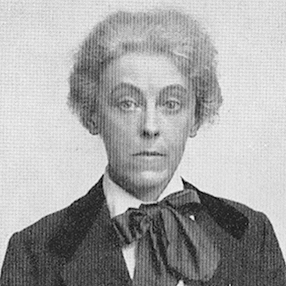The Forest Road
The forest road,
The infinite straight road stretching away
World without end: the breathless road between the walls
Of the black listening trees: the hushed, grey road
Beyond the window that you shut to-night
Crying that you would look at it by day—
There is a shadow there that sings and calls
But not for you. Oh! hidden eyes that plead in sleep
Against the lonely dark, if I could touch the fear
And leave it kissed away on quiet lids—
If I could hush these hands that are half-awake,
Groping for me in sleep I could go free.
I wish that God would take them out of mine
And fold them like the wings of frightened birds
Shot cruelly down, but fluttering into quietness so soon.
Broken, forgotten things; there is no grief for them in the green Spring
When the new birds fly back to the old trees.
But it shall not be so with you. I will look back. I wish I knew that God would stand
Smiling and looking down on you when morning comes,
To hold you, when you wake, closer than I,
So gently though: and not with famished lips or hungry arms:
He does not hurt the frailest, dearest things
As we do in the dark. See, dear, your hair—
I must unloose this hair that sleeps and dreams
About my face, and clings like the brown weed
To drowned, delivered things, tossed by the tired sea
Back to the beaches. Oh! your hair! If you had lain
A long time dead on the rough, glistening ledge
Of some black cliff, forgotten by the tide,
The raving winds would tear, the dripping brine would rust away
Fold after fold of all the loveliness
That wraps you round, and makes you, lying here,
The passionate fragrance that the roses are.
But death would spare the glory of your head
In the long sweetness of the hair that does not die:
The spray would leap to it in every storm,
The scent of the unsilenced sea would linger on
In these dark waves, and round the silence that was you—
Only the nesting gulls would hear—but there would still be whispers in your hair;
Keep them for me; keep them for me. What is this singing on the road
That makes all other music like the music in a dream—
Dumb to the dancing and the marching feet; you know, in dreams, you see
Old pipers playing that you cannot hear,
And ghostly drums that only seem to beat. This seems to climb:
Is it the music of a larger place? It makes our room too small: it is like a stair,
A calling stair that climbs up to a smile you scarcely see,
Dim, but so waited for; and you know what a smile is, how it calls,
How if I smiled you always ran to me.
Now you must sleep forgetfully, as children do.
There is a Spirit sits by us in sleep
Nearer than those who walk with us in the bright day.
I think he has a tranquil, saving face: I think he came
Straight from the hills: he may have suffered there in time gone by,
And once, from those forsaken heights, looked down,
Lonely himself, on all the lonely sorrows of the earth.
It is his kingdom—Sleep. If I could leave you there—
If, without waking you, I could get up and reach the door—!
We used to go together.—Shut, scared eyes,
Poor, desolate, desperate hands, it is not I
Who thrust you off. No, take your hands away—
I cannot strike your lonely hands. Yes, I have struck your heart,
It did not come so near. Then lie you there
Dear and wild heart behind this quivering snow
With two red stains on it: and I will strike and tear
Mine out, and scatter it to yours. Oh! throbbing dust,
You that were life, our little wind-blown hearts!
The road! the road!
There is a shadow there: I see my soul,
I hear my soul, singing among the trees!
This poem is in the public domain. Published in Poem-a-Day on January 14, 2023, by the Academy of American Poets.
“The Forest Road” was originally published in Charlotte Mew’s first collection of poetry, The Farmer’s Bride (Harold Monro’s Poetry Bookshop, 1914). As Julia Copus writes in This Rare Spirit: A Life of Charlotte Mew (Faber and Faber, 2021), the poem has classically been interpreted as a lesbian love poem, though there is evidence to support its interpretation as a poem about Charlotte’s older sister, Freda Mew, who was admitted to the Whitecroft Hospital, known then as the Isle of Wight County Asylum, in February of 1899. Copus writes, “The heart is loaded with protean meaning throughout Mew’s work, but perhaps nowhere quite so memorably as in ‘The Forest Road.’ Elsewhere, it is ‘a place of palaces and pinnacles and shining towers,’ an architect—and receiver—of emotion but also, principally, a physical organ. The heart in a Charlotte Mew poem ‘pelts and beats’; it may be ‘buried,’ ‘lame,’ ‘slowing down,’ ‘broken,’ ‘wind-blown’ or stilled against the ‘sweet earth.’ In poem after poem she reveals it to us in all its many guises: ‘wild,’ ‘guarded,’ ‘heavy,’ ‘empty,’ ‘quivering,’ tugged at by ‘tiny fingers’ or ‘beating in space.’ But only here is the bereft speaker moved to strike and tear it out altogether; only the loss of this beloved impels in her the desire to fling it down alongside its ‘dear and wild’ companion and look on as the two throb together in the dust.”

